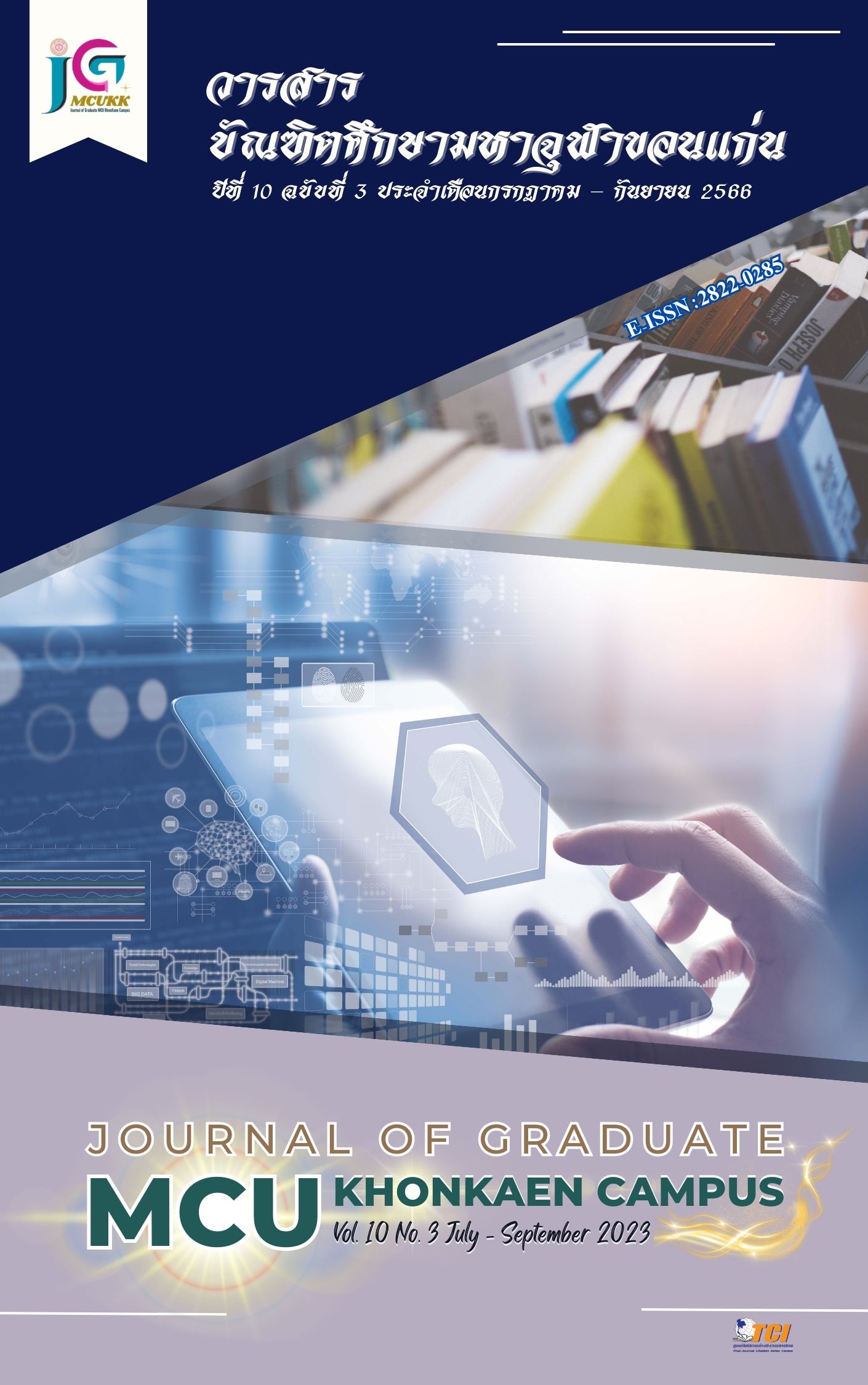มโนทัศน์การปกครองตามทัศนะพุทธปรัชญาเถรวาท
Main Article Content
บทคัดย่อ
การวิจัยนี้มีวัตถุประสงค์เพื่อ 1) ศึกษามโนทัศน์การปกครอง 2) ศึกษาการปกครองตามทัศนะของพุทธปรัชญาเถรวาท และ 3) ศึกษาวิเคราะห์มโนทัศน์การปกครองตามทัศนะของพุทธปรัชญาเถรวาทเป็นการวิจัยเชิงเอกสาร โดยการเก็บข้อมูลจากเอกสารปฐมภูมิ และเอกสารทุติยภูมิ วิเคราะห์ข้อมูลเชิงพรรณนาตามหลักอุปนัยวิธี
ผลการวิจัยพบว่า
การปกครองเป็นการใช้อำนาจอธิปไตยตามกฎหมายในการบริหารและจัดการประเทศ ซึ่งเป็นแบบแผนความสัมพันธ์ระหว่างมนุษย์ เพื่อให้เกิดข้อตกลงร่วมกันระหว่างผู้ปกครองและผู้ใต้ปกครองเพื่อให้ประชาชนมีสภาพชีวิตที่ดี มีความสงบสุขเกิดขึ้นในสังคม ทั้งทางร่างกาย จิตใจ ทรัพย์สิน ความปลอดภัยในชีวิต ในปัจจุบันมีการปกครองอยู่ 2 รูปแบบ คือ การปกครองระบอบเผด็จการและประชาธิปไตย การปกครองตามทัศนะของพุทธปรัชญาเถรวาท เป็นการปกครองที่เน้นการดูแลจัดการมนุษย์ให้อยู่กันอย่างเป็นระเบียบและเป็นธรรม โดยใช้ความยุติธรรม ความเสมอภาค และความเท่าเทียมกันในการแก้ไขปัญหาต่าง ๆ ที่เกิดขึ้นในสังคม ซึ่งมีอยู่ 2 รูปแบบ คือ ระบบราชาธิปไตยและสามัคคีธรรม
การสร้างมโนทัศน์การปกครองตามทัศนะของพุทธปรัชญาเถรวาท คือการนำเอาหลักพุทธปรัชญาเข้ามาใช้ร่วมกับระบบการปกครองแบบราชาธิปไตยและแบบสามัคคีธรรม ซึ่งเป็นการนำเอาหลักธรรมมาสนับสนุน การปกครอง โดยเฉพาะผู้ปกครองต้องมีธรรมในการปกครองคน จึงจะทำให้ประชาชนหรือผู้อยู่ภายใต้การปกครองเกิดความสงบสุข เรียกว่า ธรรมาธิปไตย
Article Details

อนุญาตภายใต้เงื่อนไข Creative Commons Attribution-NonCommercial-NoDerivatives 4.0 International License.
เอกสารอ้างอิง
กระมล ทองธรรมชาติ. (2561). หน้าที่พลเมือง วัฒนธรรม และการดำเนินชีวิตในสังคม ม.4-6. กรุงเทพฯ: อักษรเจริญทัศน์ จำกัด.
ชัยณรงค์ ศรีมันตะ. (2563). ธรรมชาติมนุษย์ในปรัชญาของโทมัส ฮอบส์. วารสารวิชาการมนุษย์ศาสตร์มหาวิทยาลัยบูรพา, 28(1), 48-72.
พระราชวรมุนี (ประยูร ธมฺมจิตฺโต). (2554). พระไตรปิฎกภาษาไทย ฉบับมหาจุฬาลงกรณราชวิทยาลัย. มหาจุฬาลงกรณราชวิทยาลัย.
วัชรมน จันรอง และคณะ. (2564). การแก้ปัญหาคอรัปชั่นในยุคดิจิทัลตามแนวพุทธจริยธรรม. Journal of Modern Learning Development, 6(4), 397-408.
สุเทพ พันประสิทธิ์. (2543). ปัญหาความยากจนและครัวเรือน. สุทธิปริทัศน์ มหาวิทยาลัยธุรกิจบัณฑิตย์, 14(43), 29-35.
สุรพล สุยะพรหม. (2544). ธัมมาธิปไตย. กรุงเทพฯ: มหาจุฬาลงกรณราชวิทยาลัย.

